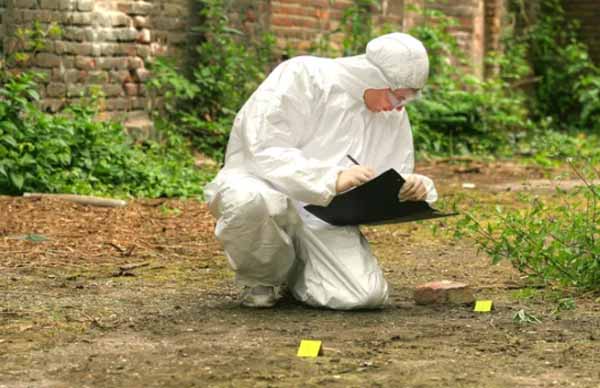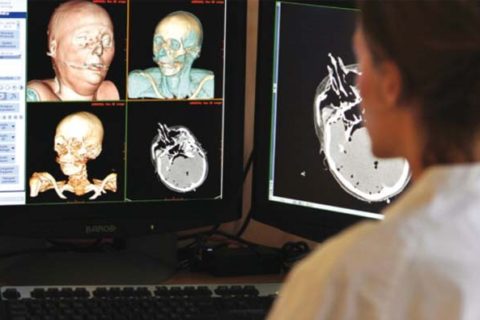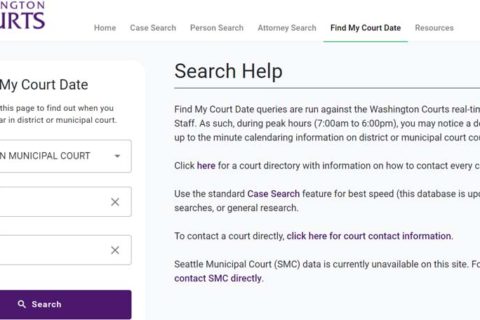Actually, if we talk about the responsibilities of a crime scene investigator, it may be a lot. After I tried to find information about the responsibilities of a crime scene investigator from some online sources, the responsibilities are more than 10 responsibilities. So, below, you are able to read the responsibilities of a crime scene investigator from some online sources.
The Duties & Responsibilities of a Crime Scene Investigator
1. From the Criminal Justice Profiles

A criminal scene investigator has to:
- assess the crime scene.
- prepare diagrams and sketches
- take measurements.
- take photographs of the crime scene
- write descriptions of the formal collection techniques
- package and transfer evidence
- maintain technical equipment
- view and photograph autopsies
- summarize interpretation of evidence
- provide expert testimony in a court of law
- enter, analyze and retrieve data on a computer.
- verify the accuracy of entered data
- prepare investigative reports
- update records when necessary
- utilize the criminal information database
- use word processing and spreadsheet software
- participate in briefings and conferences with police and law enforcement agencies
- take continuing education course to continually update their skills
- teach crime scene investigation classes
2. From the Gwynedd Mercy University
A crime scene investigator needs to:
- cooperate and collaborate with federal and state law enforcement.
- secure crime scenes where it is done to ensure that the evidence is not tampered with or contaminated.
- take careful measurements of each scene that he or she comes across.
- photograph all pieces of physical evidence, making sure to include a scale with the aim to know the exact size of the object being photographed.
- document and preserve all pieces of physical evidence.
- attend and photograph autopsies.
- maintain lab equipment and field equipment.
- testify in court in regard to the evidence that she or he collected at the crime scene.
3. From Liveabout
They have to:
- lift and collect fingerprints.
- collect and document trace evidence of DNA.
- determine the time and cause of death.
- examine weapons and devices.
- testify as a witness in court.
- conduct interviews with relatives, law enforcement officials, and medical professionals.
- assist the police with protecting the crime scene from outside contamination.
- document each detail including taking photographs of the scene and pieces of evidence that can stand up in court.
- send samples to a lab and write a report of the findings.
So, that’s all the duties and responsibilities of a crime scene investigator according to some online sources. As you can see, I do not give 10 responsibilities as the title says, but more than that. So, what do you think about the responsibilities of a crime scene investigator? Is it easy or hard? Of course, every job has its own risk including this job and you need to be careful and also take the responsibilities well.
After knowing the responsibilities of a crime scene investigator, then you need to know the skills that you need to have to be a crime scene investigator so that you will be able to do the tasks well.
Powerpoint Presentation of Crime Scene Investigator:
Skills and Competencies Needed by a Crime Scene Investigator
According to the Liveabout site, here are the skills and competencies that you need to be able to be a crime scene investigator.
- Have good intuition and judgement. To be able to have it, you need to get through experience investigating crimes.
- Have good physical stamina. When you are working as a crime scene investigator, it requires you to stoop, bend, lift, and other physical activity and for some people these activities may be hard. For people who have physical disabilities, they may not be able to do this work. In this job, you are also required to be able to work in all types of weather.
- Have a strong stomach. If you have a weak stomach, it seems that this job is not for you. It is because as a crime scene investigator, you will be called out to the most gruesome events. You may have to take photos of murder victims, collect samples of bodily fluids, and analyze blood splatters walls.
- Have critical thinking and analytical thinking. These skills are needed because the ability to evaluate evidence objectively and unemotionally is important. If you are negligent, it can be detrimental.
On the Indeed site, besides being able to solve problems and photograph, you also need to understand the law and attention to detail.
How about experience requirements of being a crime scene investigator? According to the Indeed site, crime scene investigators are required to be familiar with procedures like processing evidence and testifying in court. There are a lot of positions that require previous experience working as a Crime Scene Investigator, even though for entry-level candidates, they are able to get professional experience in the field by doing an internship with a law enforcement group. On Indeed site, it is also explained that some programs of study require students to be able to do an internship so that when they graduate, they have applicable experience.
Read also: How to Find the Entry Level Crime Scene Investigator Jobs
If you are a recent graduate, you are also able to get experience by working in the same work environment in positions such as police officer, dispatcher or a crime scene custodian.

A bookworm and researcher especially related to law and citizenship education. I spend time every day in front of the internet and the campus library.





